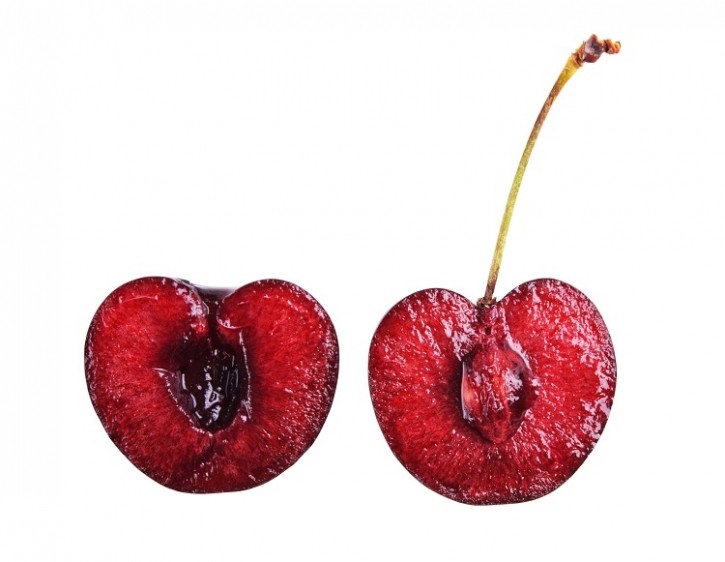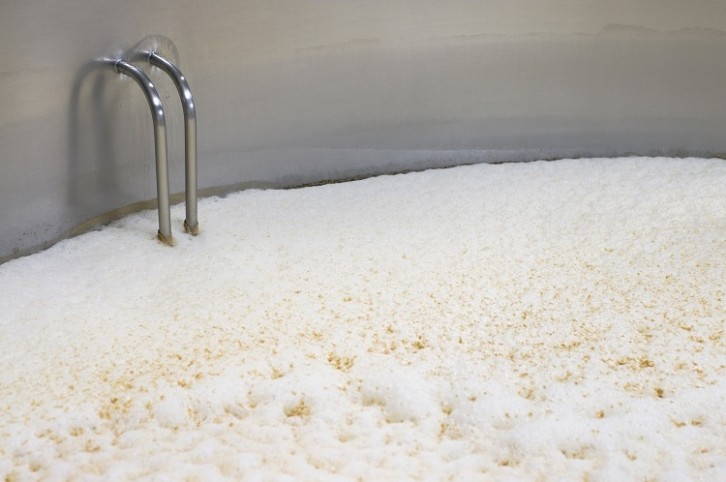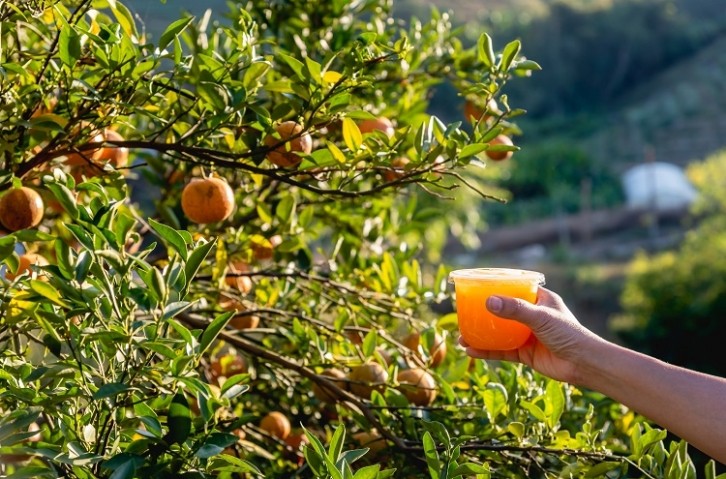Upcycling, the idea of doing extra with much less, is nothing new. Reusing previous bread in new recipes – suppose French toast or salad croutons – and reworking surplus cream from cheese manufacturing into butter are all examples of upcycling.
Even Unilever-owned British unfold Marmite began its life as an upcycled product, constituted of discarded yeast from breweries.
However with one-third of meals produced globally every year misplaced or wasted, to nice environmental and financial price, upcycling is having a second. Valorising meals manufacturing facet streams into substances presents a viable method of chopping waste and enhancing income.
One main hurdle many upcycling innovators want to beat is securing facet stream provide. In what is usually a really seasonal enterprise, how do entrepreneurs guarantee they’ve plentiful uncooked materials to work with all year long?
And in the event that they can safe enough provide, is specialising within the manufacturing of 1 upcycled meals ingredient sufficient?
Securing provide and tackling batch variation
Securing provide and limiting batch variation is a problem, in line with Luca Fichtinger, founding father of Austria-based Kern Tec – a start-up upcycling stone fruit pits into substances for the dairy trade, amongst others.
“Each batch is completely different, which is why standardisation is essential when going into upcycling,” he advised delegates at F&A Subsequent, an occasion hosted by Rabobank, Wageningen College & Analysis, Anterra Capital and StartLife, within the Netherlands.
Kern Tec approaches this problem in two methods: the start-up creates bigger batches standardised product; and makes use of smaller batches from sure areas for particular purposes, that means it’s primarily standardising for every product.

The corporate sources its facet streams – apricot, cherry and plum pits – from jam and juice processors. Thus far, Kern Tech has processed round 2,000 tonnes of those uncooked supplies, and must safe sustainable provide for the long run.
Whereas these partnerships are based on contracts and relationship constructing, Kern Tec understands guaranteeing long-term provide can also be reliant the worth the start-up is keen to pay. “On the finish of the day, it’s actually about one factor: maximising the worth creation for all sides stream,” he defined.
“In our case, we not solely deal with the seeds but in addition on valorising the shells into substances for the beauty or landscaping trade…You need to valorise the fabric to its finest, and at this level, you’re secure towards competitors.
“You probably have the very best valorisation, who else will have the ability to pay larger costs for the uncooked materials?”
Brewer’s spent yeast from beer majors or craft brewers?
Dutch start-up revyve can also be growing meals substances from would-be waste streams, however as a substitute of stone fruit pits, the start-up is leveraging brewer’s spent yeast. Useful meals substances within the pipeline embody an egg protein different.
In working with brewer’s spent yeast, a facet stream from the beer brewing course of, seasonality is much less of a problem. “That’s the nice benefit of yeast vs most crops: individuals brew beer all yr via,” mentioned revyve CEO Credric Verstraeten on the occasion.
Europe’s ‘wealthy’ brewing heritage makes it a ‘excellent place for upcycling brewer’s yeast’, he added. “There may be sufficient provide, we’re not apprehensive about operating out anytime quickly.”
However that doesn’t imply batch variability is non-existent. There may be day-to-day variability within the product, in addition to a seasonality within the forms of yeast the start-up receives from brewers: in summer time brewers are more likely to brew extra lagers, and in winter, extra ales.

One other essential issue to think about is scale. The beginning-up is searching for breweries able to dealing with variability in provide, relying on its want. Because of this, revyve is working with bigger gamers inside the brewing trade.
“Sadly, you’ll be able to’t work with a craft brewery who shouldn’t be going to be consultant of the variability of the volumes you have to cope with whenever you [product] at scale. So we partnered very early on with larger [players],” he revealed.
‘One ingredient shouldn’t be sufficient’
One other firm not wanting provide is Citrosuco spin-off Evera. The corporate is upcycling facet streams from orange juice manufacturing, such because the peel and fibre, into dietary fibres, oil essences and different substances for meals and pharmaceutical industries.
Having been spun out from Brazilian headquartered Citrosuco, one of many world’s largest orange juice producers, Evera has a ‘large’ provide of uncooked materials in its yard, mentioned Evera business director Alex Schuermans. “At this second, we’ve got two million tonnes of…very wealthy biomass that’s accessible for Evera to discover.”
The spin-off firm’s problem subsequently doesn’t lie in securing provide, however in diversifying its valorisation. Producing a pectin ingredient from oranges may very well be an apparent product selection, however with the quantity of biomass accessible to Evera, the spin-off would ‘flood’ the market with twice the quantity of pectin at the moment consumed. “You could have a number of completely different options [for valorisation], there may be not one magic one,” Schuermans advised delegates.
As an alternative, upcycling corporations must be frequently exploring new ingredient alternatives, the business director instructed. In Evera’s case, the corporate is initially working with oranges however desires to broaden past Citrosuco’s main uncooked materials to develop a various substances portfolio for the B2B market.
“Orange is our place to begin for apparent causes, [but the goal is to create] an substances firm that finds each single alternative inside the orange, then with the know-how we use to valorise these streams, why not transfer onto different uncooked supplies?
“It’s a complete journey that’s positively not with [just] one product.”


